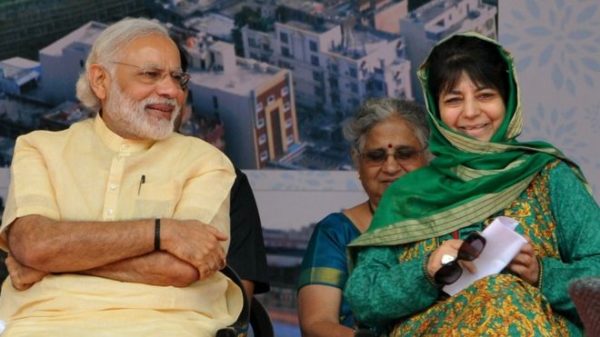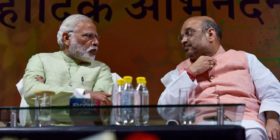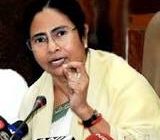The chief minister of the Indian state of Jammu and Kashmir, Mehbooba Mufti, has resigned after the ruling Hindu nationalist Bharatiya Janata Party (BJP) quit a coalition with her party.
The BJP said the three-year alliance with the People’s Democratic Party (PDP) had become “untenable” in the wake of increasing violence.
The PDP’s decision to ally with the BJP had been seen as controversial.
Its time in power was marked by rising violence in the Kashmir valley.
Mr Bukhari’s death was cited as one of the reasons for the BJP pulling out of the alliance.
The decision also came days after the UN’s human rights office called for an independent inquiry into human rights violations in both parts of Kashmir, run respectively by India and Pakistan.
What led to the split?
The BJP and PDP alliance was an uneasy one even at the best of times, with the two being very unlikely coalition partners on paper.
Since its formation in 1951, the BJP has maintained a hardline stance on the Kashmir issue and has stood for the repeal of Article 370 of India’s constitution which grants special autonomous status to the state.
In sharp contrast to the BJP, the PDP has been seen as a pro-Kashmir party. Critics accuse it of peddling “soft separatism” revolving around reconciliation with Pakistan and separatist groups fighting against Indian rule in Kashmir.
When the alliance was forged between then PDP leader Mufti Mohammad Sayeed and the BJP, many of the party’s supporters saw it as a betrayal of its people and backers.
Has the conflict worsened?
This uneasiness marked the entire three years the coalition was in power.
It saw increased violence and protests against Indian rule, with civilians often clashing with security forces. The two parties disagreed over how to handle the situation. While the PDP called for more restraint, the BJP advocated a more hardline approach.
During this time Indian forces were also accused of using “disproportionate violence” against civilian protesters.
The use of pellet guns to disperse protests was condemned around the world as thousands of civilians suffered injuries. Many lost their sight completely.
The BJP gave two main reasons for quitting the alliance: the deteriorating law and order situation in Indian-administered Kashmir, and the lack of development in other parts of the state.
PDP president Mehbooba Mufti told reporters that her party believes in reconciliation while the BJP insisted on following “muscular policies” which cannot bring peace to Kashmir.
“We worked for months to form an understanding with the BJP. We wanted the BJP to start the process of reconciliation in Kashmir and ease tensions with Pakistan,” she added.
What’s next?
The state will be put under governor’s rule unless another coalition forms the government or fresh elections are called.
Forming a government will require the support of 44 of the 89 legislators in the state assembly.
The elections in 2015 gave the PDP 28 legislators while the BJP won 25.
If the PDP were to ally with the Congress party which has 12 lawmakers, they would also need the support of the state’s three elected independent lawmakers to get the required numbers.
In another scenario, the Congress, the PDP and the main opposition National Conference (NC) could come together to form a government. But the chances of these parties coming together are slim because the PDP and NC have always been at loggerheads in the state.
The leader of the NC, former Chief Minister Omar Abdullah, is reportedly on his way to meet the governor. He tweeted “so it has come to pass” after the news of the BJP pullout but has not commented since.






Leave a reply